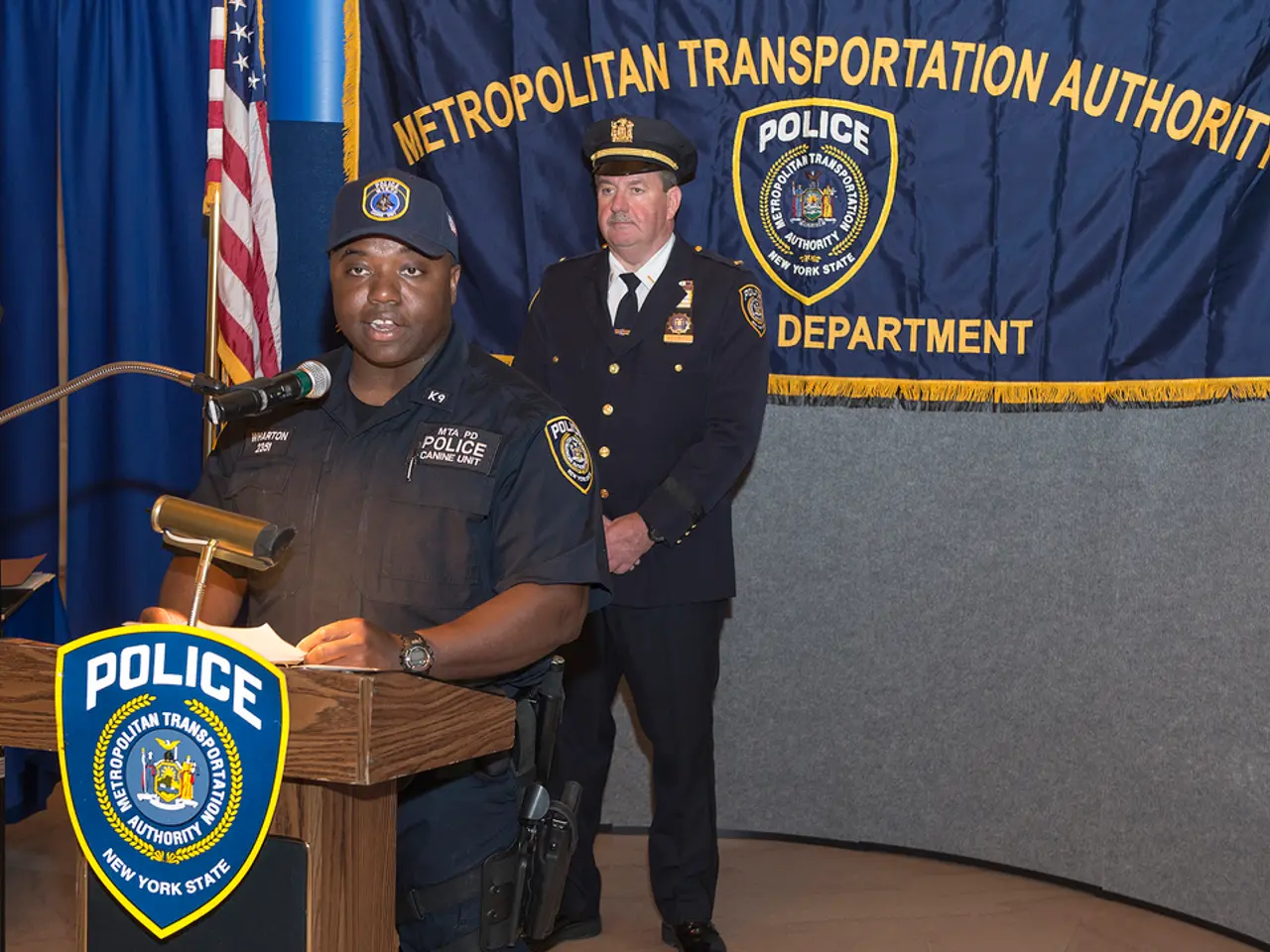AI Utilized in Police Stations for Report Drafting Assistance
In the realm of law enforcement, efficiency is key. That's where Draft One, an artificial intelligence-powered software, comes into play. Developed by Axon, a company known for its work with third-party academics, restorative justice advocates, and community leaders, Draft One aims to revolutionise the way police reports are written (1, 3).
Draft One transcribes body camera footage to create a report draft, minimising speculation or embellishments, and ensuring the AI model is calibrated for clarity (4, 7). This innovative technology has been adopted by police departments in Lafayette, Indiana; Tampa, Florida; and Campbell, California, among others (8). The result? A significant improvement in efficiency, with officers spending nearly 70% less time on report writing (3).
However, the use of AI in the criminal justice system raises concerns. While Draft One can reduce human errors and improve standardised reporting, it's essential to remember that human oversight is still necessary to verify facts and context beyond audio transcription (1, 5).
In the past, AI tools in law enforcement have been criticised for reinforcing racial biases and inequalities, leading to over-policing in minority communities and wrongful arrests (2). To mitigate these risks, ethical oversight and transparency are crucial. Many organisations lack formal AI governance frameworks or ethics boards to monitor and mitigate these biases (2).
The AI model underlying Draft One is designed to be as accurate as possible, but it's not infallible. There's a risk of errors in transcripts of body camera footage impacting reports due to misunderstandings of accents or nonverbal cues (9). Furthermore, Draft One contains bracketed fill-in-the-blanks that the officer must complete or delete before submission (10). Once a report is submitted as final, the original, AI-generated draft isn't saved (11).
These concerns have led to calls for caution. Jay Stanley, a policy analyst with the ACLU Speech Privacy and Technology Project, published a report recommending against the use of Draft One (6). In Utah, a law requires police departments to include a disclaimer on final reports that were drafted by AI (2). King County prosecutors have also expressed concerns about unintentional errors in AI-drafted police reports (9).
In conclusion, while AI-powered report drafting offers notable gains in efficiency and report standardization, it must be paired with human review and strong ethical governance to address accuracy and bias risks within the criminal justice system (1, 2, 5). The idea for Draft One came from staffing shortages that police departments were facing, and the officer reviewing the draft must fill in additional details before submitting it as final (1, 12). Draft One uses a modified version of OpenAI's ChatGPT, which has been tested and trained to reduce the likelihood of factual errors (13). As we move forward, it's essential to strike a balance between efficiency and ethics, ensuring that AI tools like Draft One serve to enhance, not undermine, the integrity of the justice system.
- The technological advancement, Draft One, a product of Axon, is revolutionizing the business of law enforcement by automating the process of writing police reports, minimizing human error, and enhancing standardization.
- Despite the promising potential of artificial intelligence in the tech industry, its application in the business of law enforcement requires careful oversight to address concerns related to accuracy, bias, and the integration of AI with human judgment.




